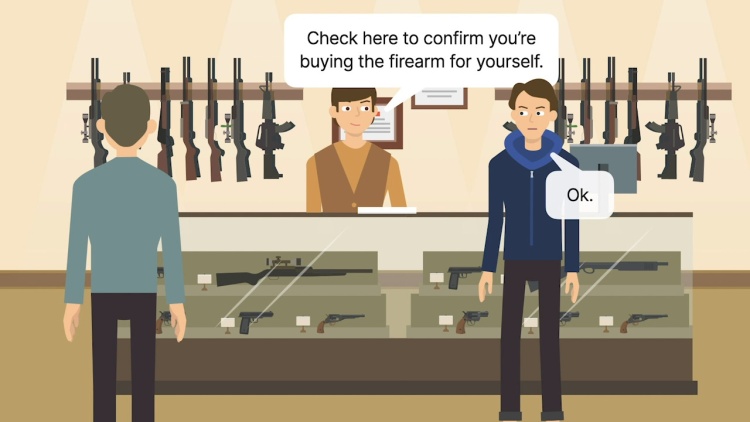United States v. Jones
United States Court of Appeals for the Seventh Circuit
371 F.3d 363 (2004)
- Written by Craig Conway, LLM
Facts
Agents with the United States Bureau of Alcohol, Tobacco, and Firearms (ATF) suspected Dennis Rock of making straw purchases, (i.e., legally purchasing numerous firearms and then re-selling them to felons). Rock and an unidentified male entered a sporting goods store in Gary, Indiana, to purchase a semi-automatic assault rifle. Rock made a partial payment and then he and the unknown male left the store. The store clerk notified ATF agents who subsequently set up surveillance inside the store. Rock returned later that morning with Dirk Jones (defendant). Rock completed the necessary paperwork to purchase the rifle while Jones wandered around the store. On the paperwork, Rock stated that the rifle was for himself. After the sale, Rock and Jones left the store and drove to Chicago, Illinois, where they were arrested. The United States (plaintiff) charged Jones with conspiracy to make a false statement to a federally licensed firearms dealer and to transfer a firearm to a resident of another state in violation of federal law. At trial, the prosecution presented no evidence that Jones was involved in any of the transactions conducted by Rock. Jones testified that he was in Gary when he saw Rock, an acquaintance, and asked him for a ride to Chicago. Rock agreed and stated he had several stops to make along the way, including one at the sporting goods store. Jones was convicted and he appealed.
Rule of Law
Issue
Holding and Reasoning (Williams, J.)
What to do next…
Here's why 911,000 law students have relied on our case briefs:
- Written by law professors and practitioners, not other law students. 47,100 briefs, keyed to 997 casebooks. Top-notch customer support.
- The right amount of information, includes the facts, issues, rule of law, holding and reasoning, and any concurrences and dissents.
- Access in your classes, works on your mobile and tablet. Massive library of related video lessons and high quality multiple-choice questions.
- Easy to use, uniform format for every case brief. Written in plain English, not in legalese. Our briefs summarize and simplify; they don’t just repeat the court’s language.









